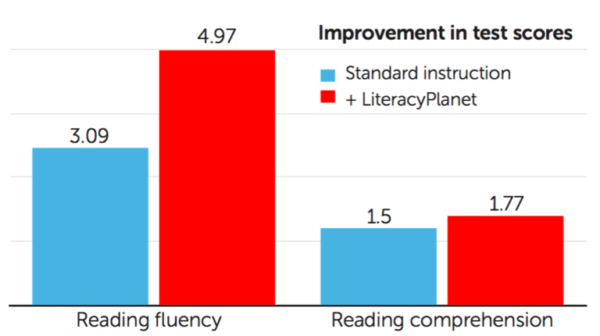A study by leading reading researchers at Macquarie University’s Department of Cognitive Science has found that using LiteracyPlanet with children who are classified as poor readers has significant treatment effects.
In the first study of its kind, reading researchers from Macquarie University and the Australian Research Council’s Centre of Excellence in Cognition and its Disorders, used LiteracyPlanet in a randomised controlled trial to measure the effect of phonics and sight word training in children with poor reading skills.
LiteracyPlanet’s phonics content covers the two most popular approaches to teaching phonics: synthetic (explicit) and analytic (implicit). The program’s sight word content covers the usual lists plus a long list of irregular or exception words that cannot be read accurately using phonics skills alone, compiled in consultation with Macquarie University and based on latest research findings.
The study found that by using LiteracyPlanet, children with poor reading skills made gains in their reading attainment that were statistically significant, reliable, and large in effect size.
- Eight weeks of phonics training or sight word training using LiteracyPlanet had large significant treatment effects on trained and untrained irregular word accuracy, non-word and word reading fluency, and reading comprehension, as well as a medium-to-large effect on non-word reading accuracy.
- Sixteen weeks of both phonics and sight word training using LiteracyPlanet had even larger effects.

Around 16% of children have reading skills that fall below the average range, and 5% have a significant reading impairment. Poor reading skills can limit children’s academic achievement, and increase their risk of emotional health and behavioural problems. It is therefore critical to treat children with poor reading as early and effectively as possible.



